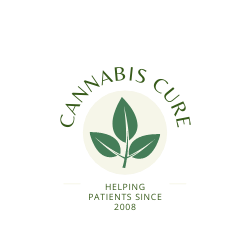Diabetes
Diabetes is a condition where the body does not produce insulin or does not use it efficiently, which can lead to a build-up of sugars in the blood and increase the risk of dangerous complications, including heart disease and stroke. There are two types of diabetes. Type 1 diabetes is an autoimmune disease where the immune system mistakenly targets and kills beta cells, the cells in the pancreas responsible for producing insulin. It is much rarer than type 2, which is characterised by the body being unable to metabolise these blood sugars (known as glucose, one of the body’s main sources of fuel) and is now one of the world’s most common long-term health conditions. Currently, the number of people diagnosed with diabetes in the UK is estimated to be 3.5 million with another 549,000 undiagnosed.
What Causes Diabetes?
Both types of diabetes cause people to have too much glucose (sugar) in their blood. Glucose gives us energy, which our bodies break down after consuming carbohydrates. The pancreas then releases insulin, which opens cells and allows glucose to enter the cells for energy use. With diabetes, either your body can’t properly produce insulin, or it can’t use it correctly. Either way, it results in poor metabolism of carbohydrates and high levels of sugar in the blood and urine.
In Type 1 diabetes, the insulin-producing pancreatic cells have been destroyed, meaning they cannot process the glucose their bodies need for fuel and the sugar accumulates in the blood. In type 2 diabetes, people can’t make enough insulin to convert glucose into energy, or they grow insensitive to the insulin they do make. Both lead to inflammation and life-changing health issues including heart attack, kidney failure, stroke, and eye disease.
What Are The Symptoms?
Excessive thirst, going to the toilet frequently, especially at night, feeling tired all the time, blurred vision, losing weight unintentionally, genital itching or thrush, and cuts and wounds take longer to heal.
What Are The Risk Factors?
In the UK, type 2 diabetes accounts for about 90 per of all diabetes cases, and type 1 diabetes accounts for approximately 10 percent.
The most well-established risk factors for type 2 diabetes are being overweight, physical inactivity, unhealthy food intake, and increasing age. Other important risk factors include smoking, high alcohol intake, genetics, certain ethnic groups, and a family history of diabetes.
Type 1 diabetes, which runs in families, tends to have a genetic component, which is usually the result of the body’s immune system mistakenly attacking insulin-producing pancreas cells. Type 1 diabetes can appear at any time in someone’s life after the destruction of pancreas cells, which produce insulin. It isn’t clear why they have been damaged but may be triggered by an infection.
How Can Medical Cannabis Help With Diabetes?
Our endocannabinoid system is made up of CB1 and CB2 receptors, and research is showing that disruption of our CB1 receptors can lead to a decrease in metabolism, an increase in fat storage, and insulin, and leptin resistance. When the CB2 receptors are disrupted, a high-fat diet can cause high retention of fat and contribute to inflammation of the pancreas and liver, so CBD’s anti-inflammatory abilities may help control the disease and maintain a healthy weight.
Research by the American Alliance for Medical Cannabis (AAMC) has suggested that cannabis can help stabilise blood sugars and a large body of anecdotal evidence is building among people with diabetes to support this. Another benefit of medical cannabis is the suppression of some of the arterial inflammation commonly experienced by people with diabetes, which can lead to cardiovascular disease. The prevention of nerve inflammation and ease the pain of neuropathy – the most common complication of diabetes – by stimulating receptors in the body and brain. A lowering of blood pressure over time, which can help reduce the risk of heart disease and other diabetes complications and the ability to keep blood vessels open and improve circulation. The cannabinoids THCV and CBD have also been shown to improve metabolism and blood glucose in human and animal models of diabetes. A 2016 study found that THCV and CBD decreased blood glucose levels and increased insulin production in people with type 2 diabetes, indicating a “new therapeutic agent for glycemic control”. Previously, tests in mice have shown the compounds boosted metabolism, leading to lower levels of cholesterol in the blood and fat in the liver.
What About Diet?
Although sugar doesn’t directly cause type 2 diabetes, you are more likely to develop it if you are overweight so losing weight will make it easier for your body to lower your blood sugar level, which will improve your blood pressure and cholesterol. There is evidence that eating a low-calorie diet, of about 800 to 1,200 calories a day, can help with symptoms of type 2 diabetes, with some people finding that their symptoms go into remission. Diabetes UK helps with tailored meal plans here.
Further Reading
How and where to safely buy RSO medical cannabis oil online
Introduction to Medical Cannabis
Help and Advice
If you need advice or help with Medical Cannabis, please use the contact form provided. We try to answer all emails within 24 hours and are happy to help and advise on all aspects of Medical Cannabis treatments in complete confidence.
Disclaimer: Please note that whilst we consider ourselves subject matter experts regarding Medical Cannabis, we are not medical professionals. We are a Medical Cannabis information resource, educating and helping those in need. Whilst we are very strong believers in the benefits of Medical Cannabis, there is still limited evidence that Medical Cannabis can treat/cure all the illnesses we discuss on our website. We recommend you do as much research as possible, and where practical seek professional medical advice before proceeding with Medical Cannabis oil.

